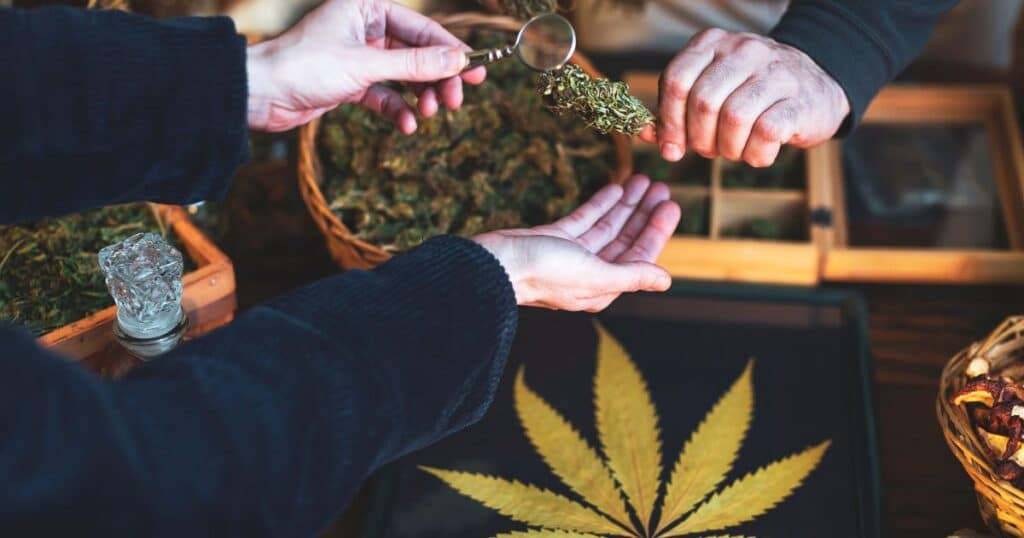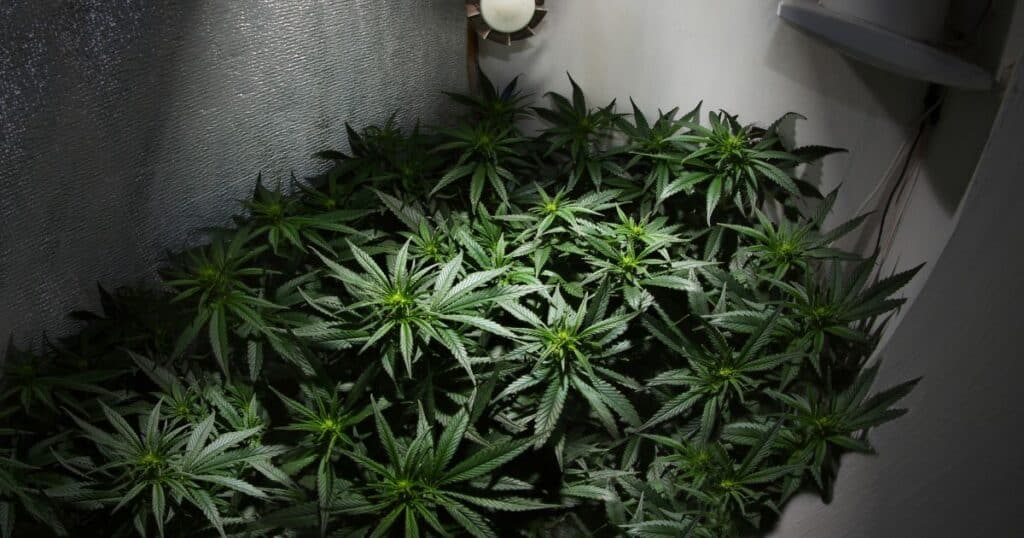Minnesota is the latest U.S. state to legalize recreational marijuana as of August 1, 2023. Possession and use of cannabis is now legal for adults over 21. Homegrown cultivation has been legalized, allowing Minnesotans to grow up to eight plants – four flowering and four non-flowering – at any time. But with the state’s legalization came a new question: Does the Minnesota state constitution legalize homegrown marijuana sales without needing a license?
The legality of selling homegrown marijuana is up in the air, as there is no definitive answer. The state constitution’s Amendment XIII, Section 7 states that “the right of farmers and others to sell or peddle farm products at any place within the state shall not be prohibited.” This has led some to debate whether Minnesota citizens can now legally sell their homegrown marijuana without needing a license.
The Minnesota State Constitution’s Provisions For Selling Farm Grown Products Without Needing a License
The Minnesota State Constitution’s Amendment XIII, Section 7, holds that “the right of farmers and others to sell or peddle farm products at any place within the state shall not be prohibited.” This includes all agricultural goods, from fruits and vegetables to flowers and eggs. So the question remains: Does this also include cannabis?

On its surface, it seems like it could, as cannabis is a plant and can be grown in much the same way as any other agricultural product. However, the history of this amendment has shown that things may be more complex. When it was initially drafted, the primary purpose was to ensure farmers’ right to bring their crops to market without needing a license. The courts have clarified that this doesn’t mean that all agricultural products can be sold without regulation, as the state still has the power to make certain goods illegal and control their use.
Earlier this month, David Schultz wrote an op-ed published to MinnPost asking the same question while also looking into the challenges of Minnesota State Constitution’s Amendment XIII, Section 7 over the years.
For example, the 2005 State v. Hartmann opinion by the Minnesota Supreme Court stated that selling farm-raised meat without a license is still subject to regulation for public health reasons. One could argue that even if cannabis is considered a farm product, the state could still ban or regulate its sale.
Also, in a ruling from a 1998 case challenging Amendment XIII, Section 7, the Minnesota Attorney General at the time had this to say in a verdict “Minn. Const, art. XIII, § 7 was never meant to prohibit legislation regulating the safety of farm products. It simply limits the ability of state and local governments to license the sales of farm products. The Minnesota controlled substance statutes, on the other hand, are criminal prohibitions enforcing the State’s constitutional obligation to protect its people. They are not a licensing scheme. Even if the controlled substance statutes collaterally affect the ability of a farmer to market a crop – they are a reasonable accommodation in the interest of public health. A farmer has no more right to produce and sell dangerous products under Minn. Const, art. XIII, § 7 than he does to yell “fire” in a crowded theater under the First Amendment.”
Another important observation to be made from the amendment is the use of the word “peddle.” The Court of Appeals defines this term as going door-to-door to sell products. This could mean that selling cannabis from a fixed location, such as a store, could still be regulated or banned, while selling it door-to-door may not be affected.
Possible Loophole?
The ambiguity of the Minnesota State Constitution’s Amendment XIII, Section 7 gives hope to small-scale cannabis growers who are looking for a way to sell their product without needing a license. If interpreted correctly, this amendment could open up a new avenue of revenue for these individuals.
As mentioned before, the term “peddle” has been defined as going door-to-door in order to sell products. This means that if cannabis was considered an agricultural product, small-scale growers could feasibly go door-to-door and sell their homegrown marijuana without needing a license. This could be especially beneficial to those in rural areas of Minnesota with limited access to dispensaries or other retail stores.
It’s also possible that the courts have been interpreting the amendment wrong all along, which holds more potential than previously believed. A court case challenging the current interpretation of the amendment could open up opportunities for small growers to take advantage of this legal loophole and sell their finished flower directly to consumers.
Possible Legal Roadblocks and Regulations
Although the Minnesota State Constitution’s Amendment XIII, Section 7 could provide a legal loophole for small-scale marijuana growers to sell their product without needing a license, several potential roadblocks are still in the way.
For starters, it’s unclear if cannabis is even considered an agricultural product according to the amendment. The courts have yet to make a ruling on this issue, and no case has been brought to challenge the current interpretation of the amendment, which could mean that selling cannabis would still be illegal. Furthermore, even if it is considered an agricultural product, the state could still impose regulations on its sales, such as age restrictions or limits on quantities sold.

Lastly, there’s a chance that this loophole will not remain open for long. If small-scale growers start taking advantage of this legal avenue, the state will likely amend its laws to prevent them from doing so. This could mean new regulations or outright bans on door-to-door sales of cannabis without a license, making it difficult for small growers to sell their products legally.
Overall, this is an issue that needs to be sorted out before small-scale growers can begin to take advantage of this loophole. Until then, we’ll have to wait and see if the courts will make a ruling that could open up a whole new lane for small-scale growers to benefit from selling their cannabis directly to consumers.
Nothing New in Minnesota
The situation of possible homegrown marijuana sales without needing a license is similar to the recent issue of Minnesota politicians creating the largest free market for hemp-derived THC beverages by accident. When legislators passed a law allowing for producing and selling such products, they hadn’t fully considered how it would impact consumers. As a result, nearly every corner store in Minnesota is now allowed to carry these beverages.
The two situations are also similar in that they both involve an ambiguity within the law that could open up a new avenue of revenue for individuals or businesses without a license. In the case of cannabis, if interpreted correctly, this loophole could provide small-scale/homegrow an opportunity to sell their product directly to consumers.
The takeaway from both of these situations is that the law can sometimes be interpreted in unforeseen ways and have far-reaching implications. This is why it’s important for legislators to understand the full impact of laws before passing them, as was the case with hemp-derived THC beverages.
Only time will tell if this loophole can be taken advantage of or not, but one thing is for sure: small-scale/homegrow cannabis growers have a lot at stake with the outcome of this issue. If interpreted correctly, it could open up a whole new world of opportunities for these individuals. In the meantime, we’ll have to wait and see how this plays out.
Keep updated on all the latest news and updates in the Cannabis industry here at Beard Bros Pharms by signing up for our Friday Sesh Newsletter here. Always Dank and Never Spam!






